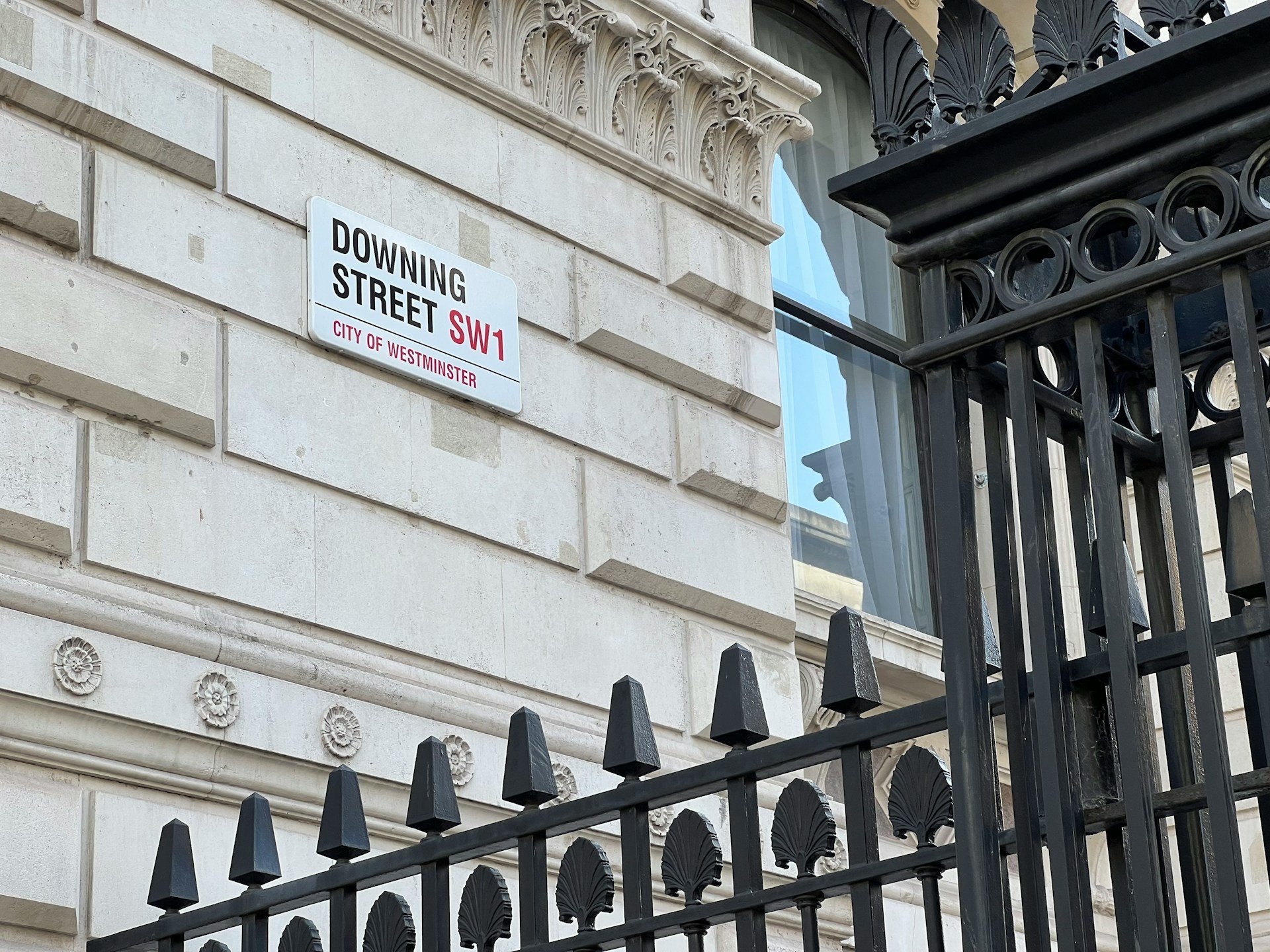
What does the next general election mean for small businesses?
by Tara Covell
Last year was a turbulent one for UK businesses as they grappled with the lingering effects of the pandemic and new challenges like the war in Ukraine, Brexit and the cost-of-living crisis.
With a general election on the horizon, the UK's economy is poised for a transformative shift. As political parties reveal their plans for the country, including how they intend to support businesses, business owners must stay well-informed about the potential benefits.
While the coming year may bring a mix of uncertainty and opportunity, businesses must be prepared to adapt and seize the moments that come their way.
What are the polls saying?
YouGov regularly surveys the general public to understand voting intention, and according to their latest figures, Conservatives have 20% of the vote while Labour holds 47%. With Liberal Democrats only having 8%, let's take a look at what could be in store for business owners this year from the two front runners.
If the current government stay in power
As the current government is Conservative, examining its approach is a good place to start. Last year, we saw these changes come into effect:
- Corporation tax went up from 19% to 25%
- The additional income tax threshold decreased from £150,000 to £125,140.
- Personal allowance of £12,570 frozen until 2028
- Tax-free dividends reduced from £2,000 to £1,000
- Tax-free allowance on capital gains tax reduced from £12,300 to £6,000
Considering the current economic challenges, such as the cost-of-living crisis and unprecedented inflation rates, businesses are unlikely to receive significant tax relief if re-elected.
However, investment is a crucial part of the Conservative Party's agenda for supporting businesses, with several government initiatives focusing on unlocking the UK workforce's potential.
Driving business growth with investment zones
Investment zones are one of the government's main strategies. Local business leaders will get the tools to drive growth in their areas, with each zone receiving £80M of funding for skills, infrastructure, tax reliefs, and business rate retention.
Eight locations in England will be eligible for a UK investment zone: West Midlands, Greater Manchester, North East, South Yorkshire, West Yorkshire, East Midlands, Teesside and Liverpool.
Reducing the cost of childcare
Increasing tax-free childcare is another way the current government aims to support business owners and self-employed workers. By reducing the cost of childcare, you won't have to choose between growing your business and your family, which can remain a priority if the Conservatives get re-elected.
Support for Technology Startups
Chancellor Jeremy Hunt has set a goal to transform the UK into a global hub akin to Silicon Valley, focusing on becoming a powerhouse in science and technology. This initiative includes directing financial support towards technology startups.
The strategy involves allocating £75 billion from pension funds to these startups. Nine leading pension funds have committed to allocating a minimum of 5% of their assets to invest in UK-based startups.
Hunt said this approach will "unlock capital from the private sector, delivering growth not by subsidy but by increasing support for entrepreneurs and investors who take risks to create long-term value."
Tackling late payment
Within the framework of the Cash Flow and Prompt Payment review, the Conservative Party is keen on improving transparency around delayed payments and strengthening the authority of the Small Business Commissioner.
Secretary of State for Business and Trade Kemi Badenoch strongly committed to addressing this issue: "I know that late payments are a massive barrier to growth, and I am determined to fix that. The measures we're announcing will take a big step towards making sure SMEs get their payments on time, helping firms to grow and prosper."
Research conducted by Simply Business reveals the extent of this challenge for small business owners, with 54% reporting up to £5,000 owed in delayed payments.
'Softer' targets for energy efficiency
In an unexpected announcement, Prime Minister Rishi Sunak outlined changes to the UK's net-zero carbon emissions targets. These changes include postponing the ban on new petrol and diesel vehicles, eliminating the upcoming energy efficiency standards for rental properties, and slowing the transition from gas heating systems – the government has made its approach clear.
The rationale behind this move is the high cost to households and businesses for implementing these energy-efficient upgrades under the current economic conditions. The Conservatives want to give people more time for this transition rather than introduce schemes to support them in doing it sooner.
Additionally, the Conservatives have a detailed 'plan for drivers', including enhancements to 20mph zones, emissions levies, and promoting low-traffic areas. This approach signals the party's commitment to supporting motorists, potentially benefiting business owners who rely on vehicles for their operations.
And what about Labour?
Labour's overarching goal is establishing Britain as the prime location for starting and expanding businesses. It is important to note that the Labour Party has not formalised these objectives in an official manifesto, implying that these are more aspirational targets than concrete plans.
Labour has unveiled its approach to rejuvenate the high street, a plan expected to influence businesses across the spectrum. This strategy provides insights into Labour's priorities and offers small business owners a glimpse into the party's vision for supporting business growth and development in the UK.
No more late payments
The persistent challenge of delayed payments for small enterprises has led both Labour and the Conservatives to prioritise resolving this issue. Labour proposes enacting stringent new regulations to eliminate late payments, ensuring enhanced financial flow to high street businesses.
To tackle the problem of late payments, Labour intends to mandate "big businesses to report on their company's payment practices in their annual reports." This requirement is designed to increase transparency and hold larger corporations accountable towards their payment attitude, aiming to foster a fairer business environment for smaller companies.
Reducing business rates for SMEs
Business rates represent a significant expense for small businesses operating from commercial premises. Labour proposes reducing business rates for small and medium-sized enterprises (SMEs) by increasing the threshold for small business rate relief.
The funding for this reduction will come from implementing a higher digital services tax on "tech giants." Labour estimates that this policy adjustment could result in an average savings of £2,600 for businesses such as pubs and restaurants, aiming to alleviate financial pressures and support growth.
Voucher scheme to help with energy bills
Recent statistics indicate that 43% of SMEs face higher energy bills than the previous year, and Labour is committed to helping these businesses increase their energy efficiency.
The party's strategy includes launching a voucher program designed to reduce the costs associated with buying electric vehicles and installing heat pumps and insulation for businesses. This initiative would be financed by imposing a windfall tax on oil and gas corporations, generating an estimated £700M to support the voucher scheme for small businesses.
This approach aims to make sustainable energy solutions more accessible to SMEs, contributing to reduced operational costs and a smaller carbon footprint.
Homebuilding Initiative
A key highlight from the Labour Party conference is their ambitious plan to build 1.5 million new homes to help people become homeowners.
This initiative is a welcome development for the construction sector, which has experienced a recent downturn in new jobs. It promises to ignite a plethora of new projects across the country. And the Federation of Master Builders (FMB) has emphasised the importance of using the talent of UK small businesses.
Brian Berry, Chief Executive of the FMB, said: "The announcement on new towns is a good idea to promote regional growth and deliver new homes, but it's essential that local builders are part of this process. Bringing SMEs on board with new town development will ensure high-quality and diverse housing while also creating wider benefits, like vocational skills opportunities."
...
Both the Labour and Conservative parties have outlined initiatives to strengthen the UK economy, support small businesses, and enhance sustainability. Labour's commitment to building 1.5 million homes and providing energy efficiency vouchers for SMEs, alongside Conservative strategies for reducing childcare costs and setting more lenient energy targets, reflect a shared focus on fostering business growth, promoting affordable housing, and encouraging environmental responsibility. These proposed measures demonstrate a collective effort to address key challenges and ensure a prosperous and sustainable future for the UK.
Related articles

Kindness in Leadership: The Competitive Advantage Most Businesses Miss
Discover why kindness in leadership drives performance, trust and culture. TABcast insights on psychological safety, coaching and values-led growth.

How Strategic Alignment Workshops Drive Real Execution
Many strategy workshops create alignment in the room — but little action after. Learn how structured strategic alignment drives execution.

Why Accountability Breaks Down as Businesses Grow (And How to Fix It)
As businesses grow, accountability often slips. Learn why it happens and how leaders restore clarity, ownership, and execution.


